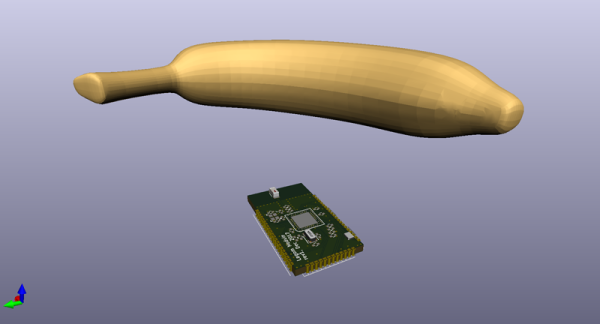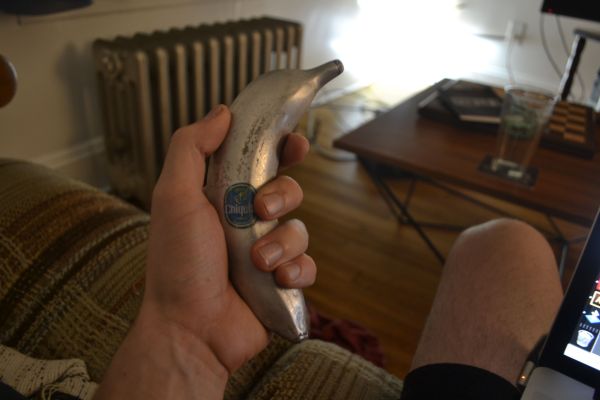Have you noticed any apps missing from your Android phone lately? We haven’t but then again, we try to keep the number of apps on our phone to a minimum, just because it seems like the prudent thing to do. But apparently, Google is summarily removing apps from the Play Store, often taking the extra step of silently removing the apps from phones. The article, which seems to focus mainly on games, and has a particular bone to pick about the removal of RPG Wayward Souls, isn’t clear about how widespread the deletions are, or what exactly the reason behind the removals could be. But they sure are exercised about it, and rightly so since in some cases the deleted games have actually been paid for by the users, and Google pretty much says that if you think you’re getting a refund, think again. They make some interesting points, such as this being the very definition of larceny, while also acknowledging that in all likelihood Google has a get-out-of-jail-free card buried in some EULA somewhere permitting them to do exactly what they’re doing. Google’s gonna Google, right?
banana for scale4 Articles
Hackaday Links: August 6, 2023
“Have you tried turning it off and on again?” is a common tech support maneuver that everyone already seems to know and apply to just about all the wonky tech in their life. But would you tell someone to apply it to a reservoir? Someone did, and with disastrous results, at least according to a report on the lead-up to the collapse of a reservoir in the city of Lewiston, Idaho — just across the Snake River from Clarkston, Washington; get it? According to the report, operators at the reservoir had an issue crop up that required a contractor to log into the SCADA (supervisory control and data acquisition) system running the reservoir. The contractor’s quick log-in resulted in him issuing instructions to local staff to unplug the network cable on the SCADA controller and plug it back in. Somehow, that caused a variable in the SCADA system — the one storing the level of water in the reservoir — to get stuck at the current value. This made it appear that the water level was too low, which lead the SCADA system to keep adding water to the reservoir, which eventually collapsed.
KiCad Gets Banana For Scale
Over the years we’ve seen KiCad grow from a niche, somewhat incomplete, but Open Source PCB design suite to a full-featured extravaganza of schematics and board layouts. We’ve plumbed the depths of keys and kais and queues and quays, and KiCad just had its first conference last weekend. While we wait for the rest of the talks to be published, there’s a special treat for KiCad users everywhere. Here’s a banana for scale.
Have you ever worried your PCB was too big? Confused if you’re working in inches or millimeters? Do you just want to know the scale of your PCB? Just add this footprint to your KiCad project, and you’ll have a banana on your board view. This is immediate visual feedback, giving you all the information you need to continue on with your design. There’s a 2D view and a 3D view. It’s something no electrical engineer should be without. All of this can be yours for the low, low, cost of free because KiCad is Open Source.
If you’re wondering what official features are in the works for the EDA suite, the first two talks from the con delve into that. project leader Wayne Stambaugh’s talk covers features new to version 5.1 and plans for 6.0. There was also a developers panel that provides insight on what goes into a large project like this one.
Sand Cast Banana For Scale Is So Metal
If you’ve been on Reddit over the past year, you’ve likely encountered the “banana for scale” meme. [BFG121] felt that the size variation of bananas would not do – there needed to be a standard. He decided to make a metal banana out of re-purposed aluminum. He created his own furnace out of everyday objects including a hair dryer, metal bucket, cement, fire clay, and sand. [BFG121] used a typical banana as the reference for his sand casting mold. After melting the aluminum in his homemade furnace, he poured it into the empty mold, making sure there was an extra hole for the displaced air to escape. The end result is a perfect replica of a banana. [BFG121] made two aluminum bananas, and stamped each one with a serial number. One was given to Imgur headquarters while the other was auctioned on eBay. The winning bid (#39) was $67 USD, a very good ROI.
If you want to learn more about metal casting, check out myfordboy’s channel on YouTube. You can also see an example of the “banana for scale” in this Hackaday article about a giant spirograph. Our only suggestion to [BFG121] is to send some to ASTM, NIST, and BIPM!
[via Reddit]













